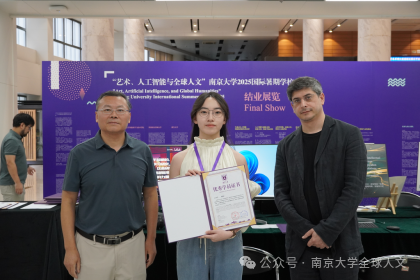On July 13, 2025, the Art, Artificial Intelligence and Global Humanities International Summer School, jointly organized by the Institute of Global Humanities of the School of Advanced Sciences at Nanjing University, the School of Intelligent Science and Technology of Nanjing University, the University of Southampton in the UK, and the University of Macau, concluded successfully at the Xianlin Campus of Nanjing University. During the two-week intensive study, 40 participants from China, the UK, the US, Portugal and other countries deepened their understanding through in-depth discussions and practical explorations, forged strong bonds in cross-cultural academic exchanges, and jointly created an unforgettable academic experience.
The summer school designed its curriculum around three core modules: Technical Analysis, Philosophical Reflection, and Social Application, aiming to help participants build a comprehensive understanding from technological development to ethical boundaries and then to social application. At the technical level, Guo Lanzhe, an assistant professor at the School of Intelligent Science and Technology of Nanjing University, systematically reviewed the evolution of AI technology; Xiao Yini, a professor at the Global Intellectual Property Research Institute of Nanjing University, analyzed the copyright disputes of generative AI; and Associate Professors Huo Jing and Wang Shuo from the School of Computer Science demonstrated the cutting-edge practices of AI in art creation.
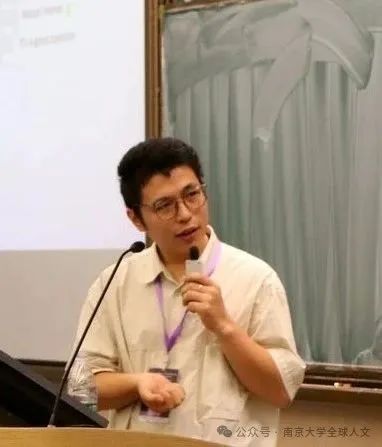
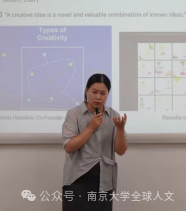
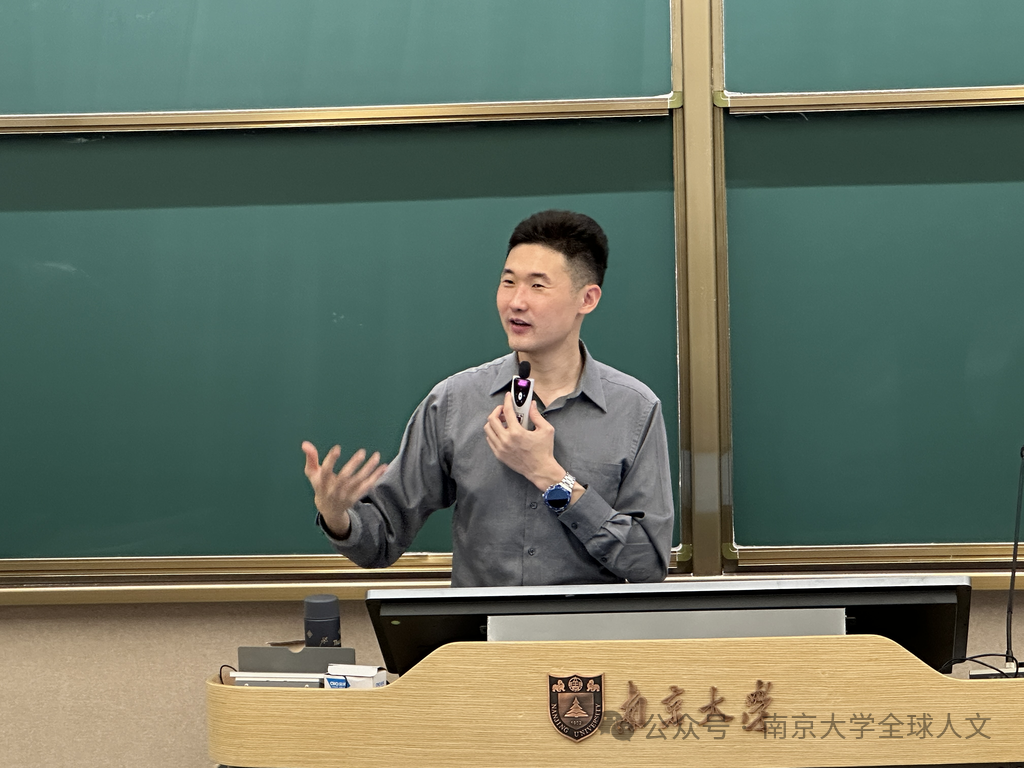
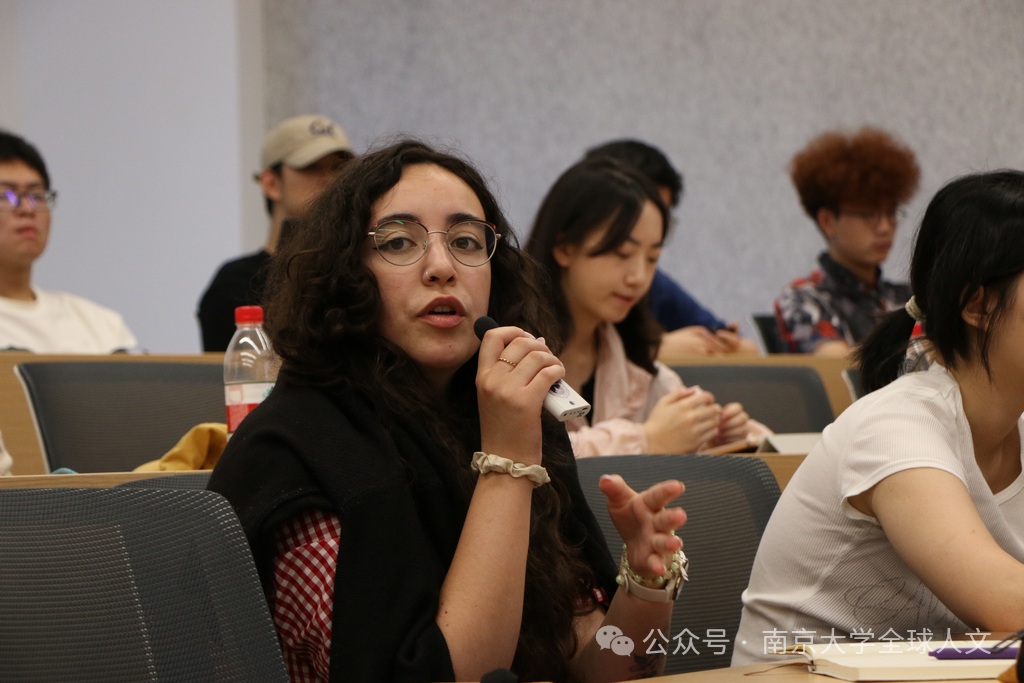
Professor Sunil Manghani from the University of Southampton initiated a series of lectures titled Artificial Intelligence and the Post-Knowledge Condition, Cultural Coding in AI Models from a Structuralist Perspective, and The Technological Singularity and Electronic Life from a philosophical perspective.
Professor Sunil Manghani from the University of Southampton initiated a series of lectures titled Artificial Intelligence and the Post-Knowledge Condition, Cultural Coding in AI Models from a Structuralist Perspective, and The Technological Singularity and Electronic Life from a philosophical perspective. The students experienced firsthand how technology permeates the times from the most familiar and concerning areas in their daily lives, and gained new insights and thoughts on the application of AI.
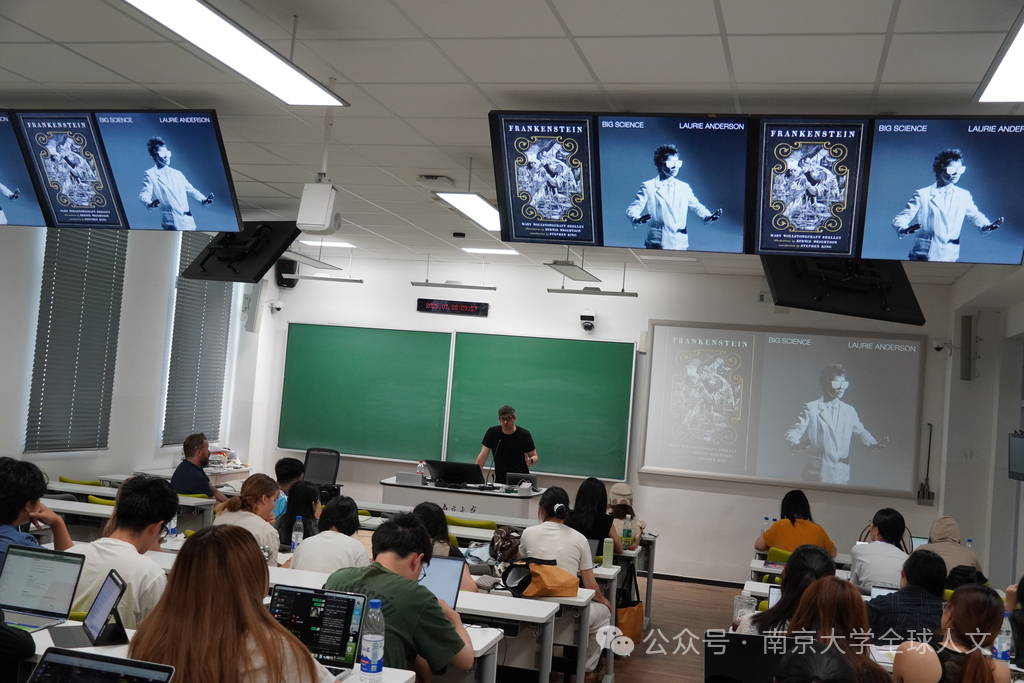
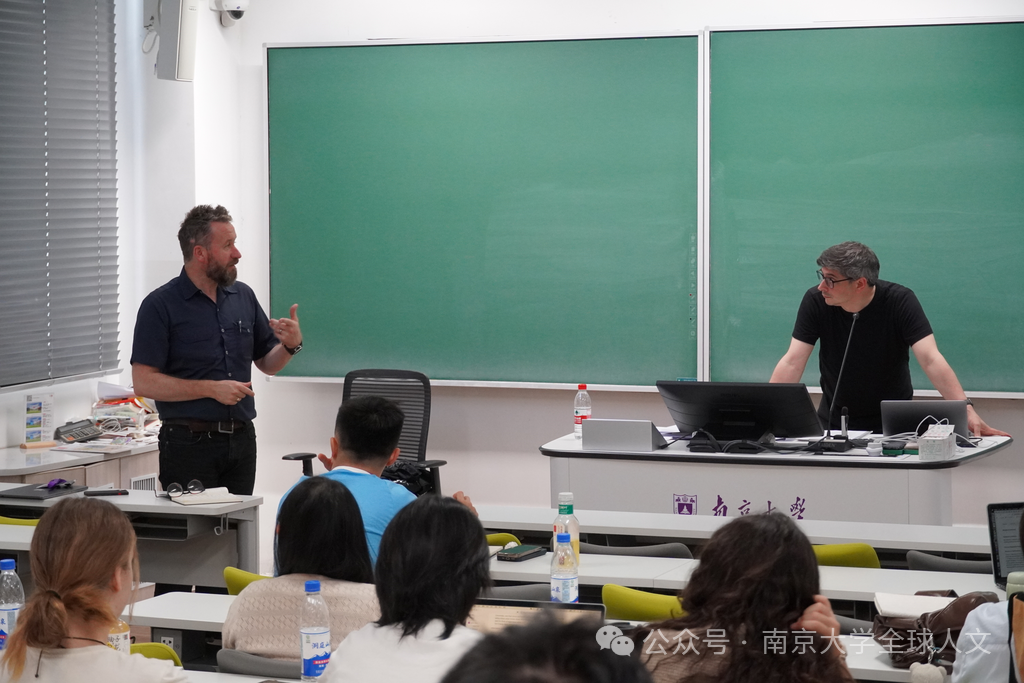
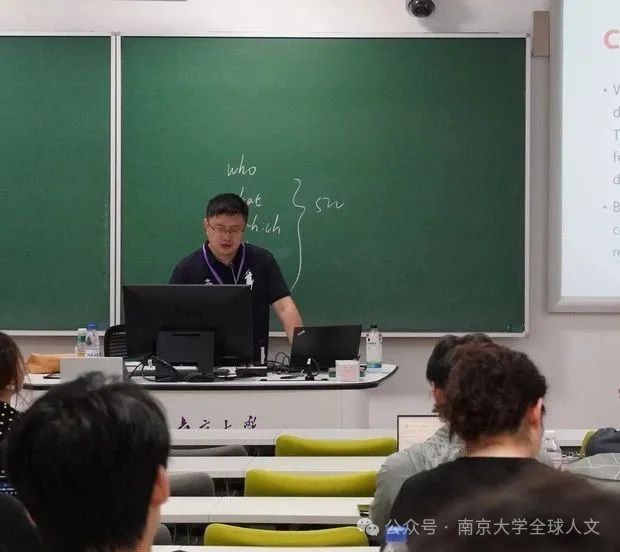
Dual-track study tour featuring in-depth dialogue between humanities and technology
This summer school study tour route innovatively integrates cultural heritage sites and cutting-edge technological frontiers, enabling students to not only experience the beauty of classical gardens through VR technology, but also witness the latest applications of AI in laboratories. It allows everyone to truly understand that technology can bring traditional culture to life, and humanistic thinking can also guide the direction of technological development.
This summer school study tour route innovatively integrates cultural heritage sites and cutting-edge technological frontiers, enabling students to not only experience the beauty of classical gardens through VR technology, but also witness the latest applications of AI in laboratories.The VR experience of Suzhou's Zhouzhi Garden recreates the spatial philosophy of the Ming Dynasty gardens. It allows everyone to truly understand that technology can bring traditional culture to life, and humanistic thinking can also guide the direction of technological development.
The intelligent guided tour of the Wu Culture Museum decodes the Wu Culture system that began in the Shang and Zhou periods. Meanwhile, the Nanjing Museum showcases the restoration technology of digital cultural relics.The VR experience of Suzhou's Zhouzhi Garden recreates the spatial philosophy of the Ming Dynasty gardens. The intelligent guided tour of the Wu Culture Museum decodes the Wu Culture system that began in the Shang and Zhou periods. Meanwhile, the Nanjing Museum showcases the restoration technology of digital cultural relics.
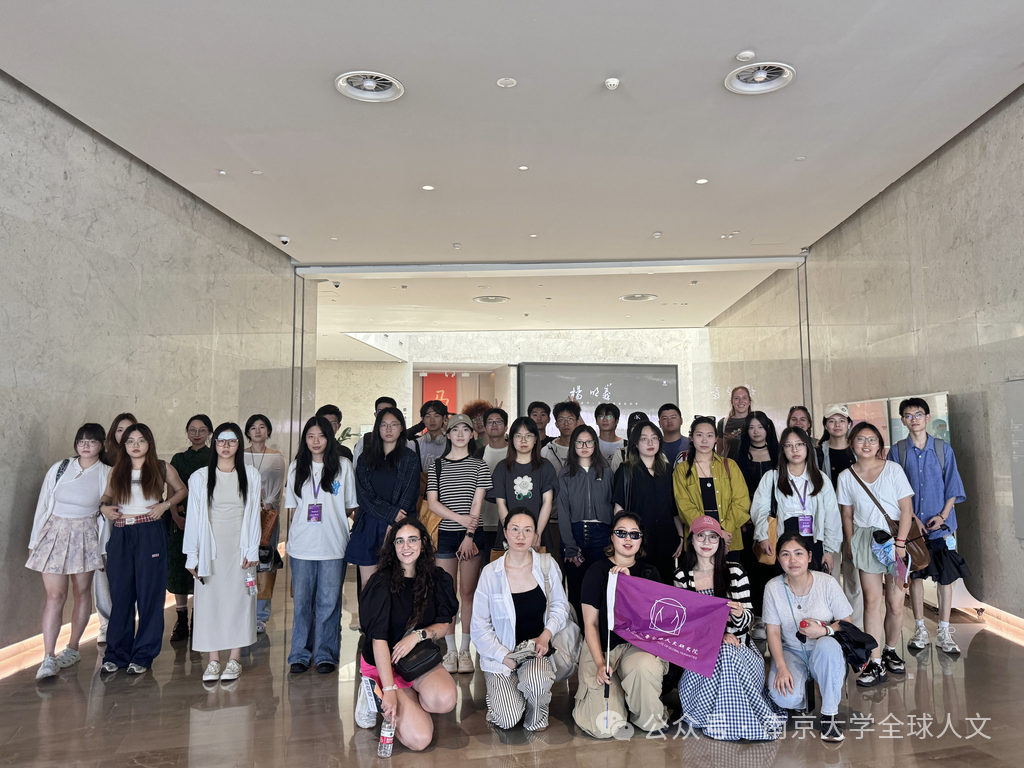
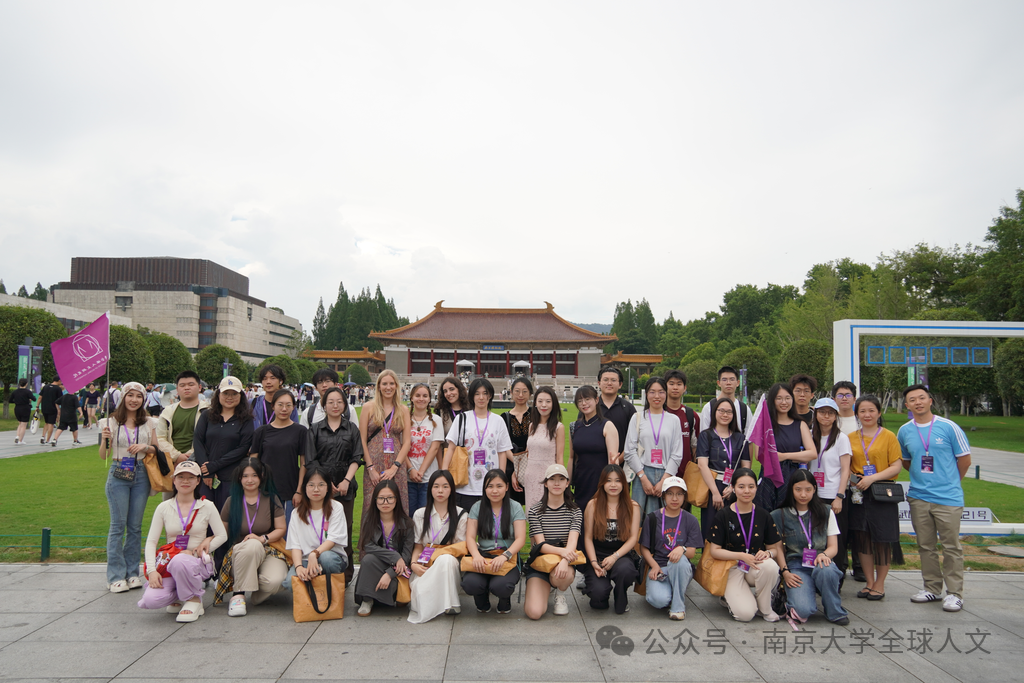
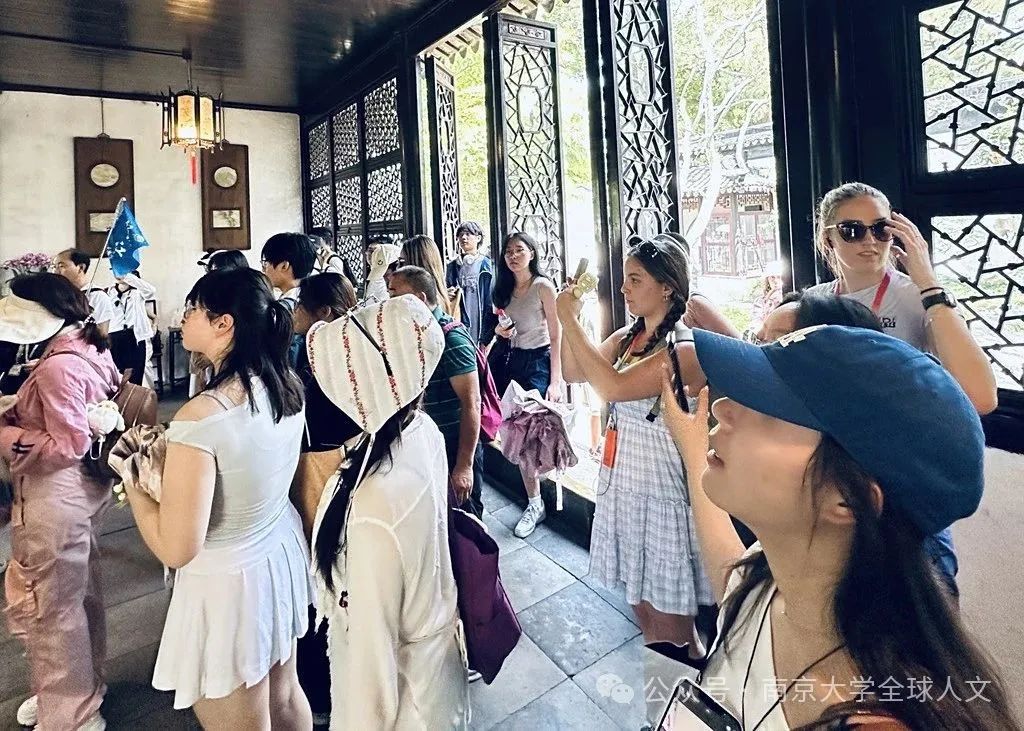
The KDDI Suzhou Research Institute of Tsinghua Cloud Computing, as a cutting-edge technology base, systematically presented the application scenarios of the AI industry to the trainees; the Nanjing University Embodied Intelligence Base demonstrated the robot's environmental perception and interaction system, introduced the training methods of AI in the autonomous cognition and decision-making of robots, forming a practical closed loop of technology empowering humanities and humanities leading technology.The KDDI Suzhou Research Institute of Tsinghua Cloud Computing, as a cutting-edge technology base, systematically presented the application scenarios of the AI industry to the trainees; the Nanjing University Embodied Intelligence Base demonstrated the robot's environmental perception and interaction system, introduced the training methods of AI in the autonomous cognition and decision-making of robots, and formed a practical closed-loop of technology empowering humanities and humanities leading technology.
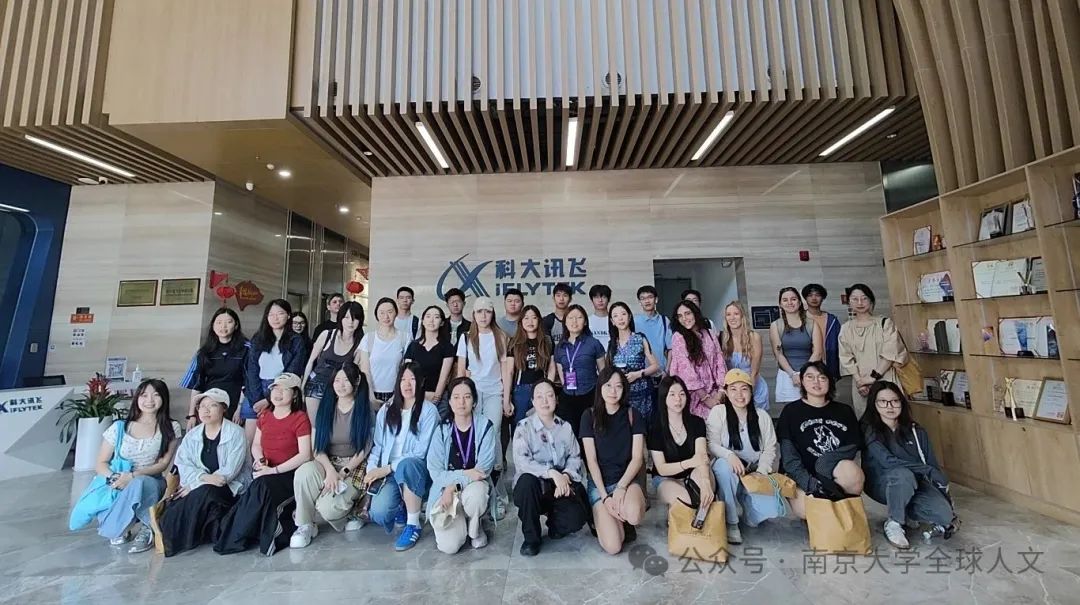
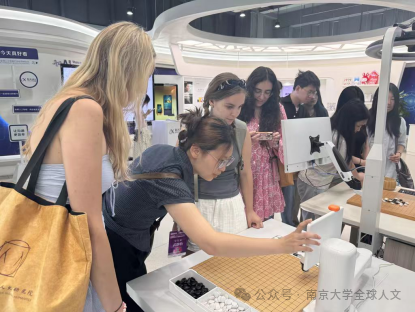
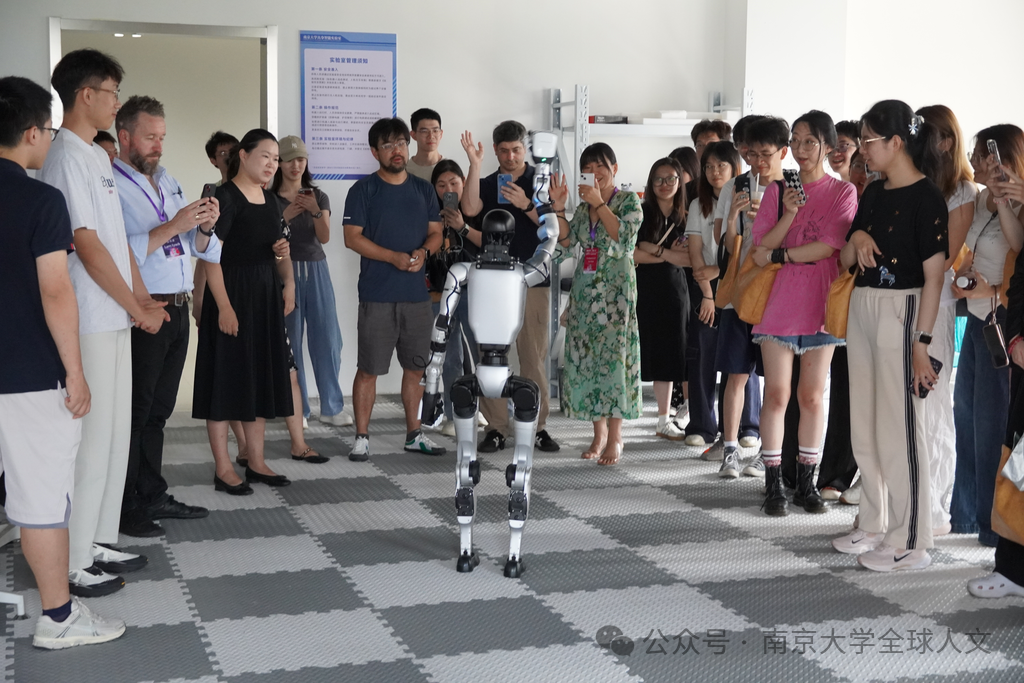
Interdisciplinary collaboration and teacher-student co-creation workshop
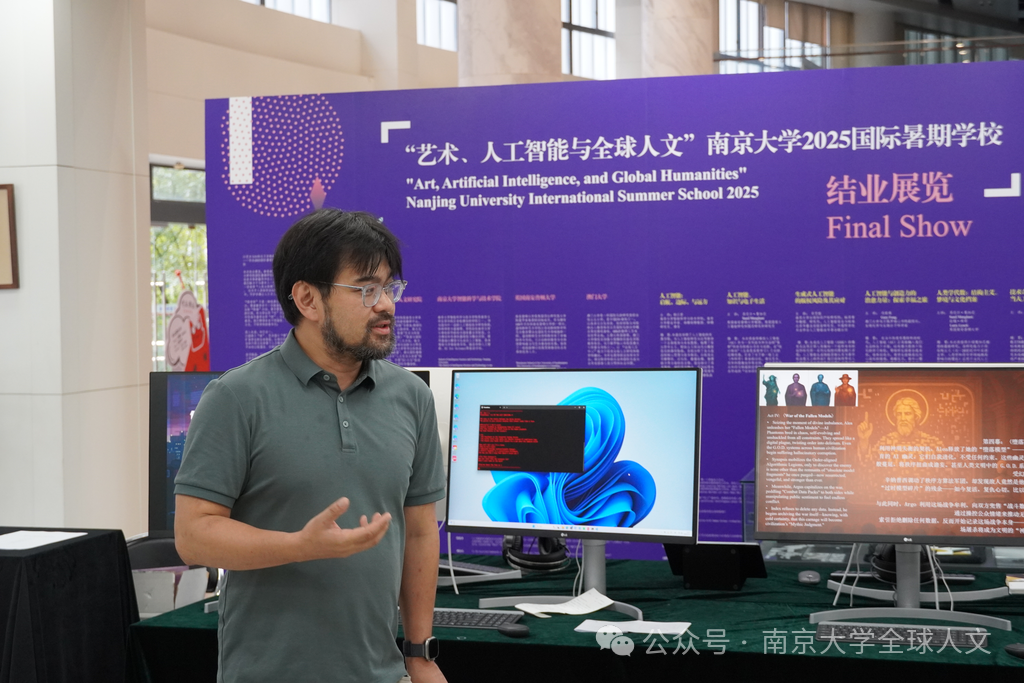
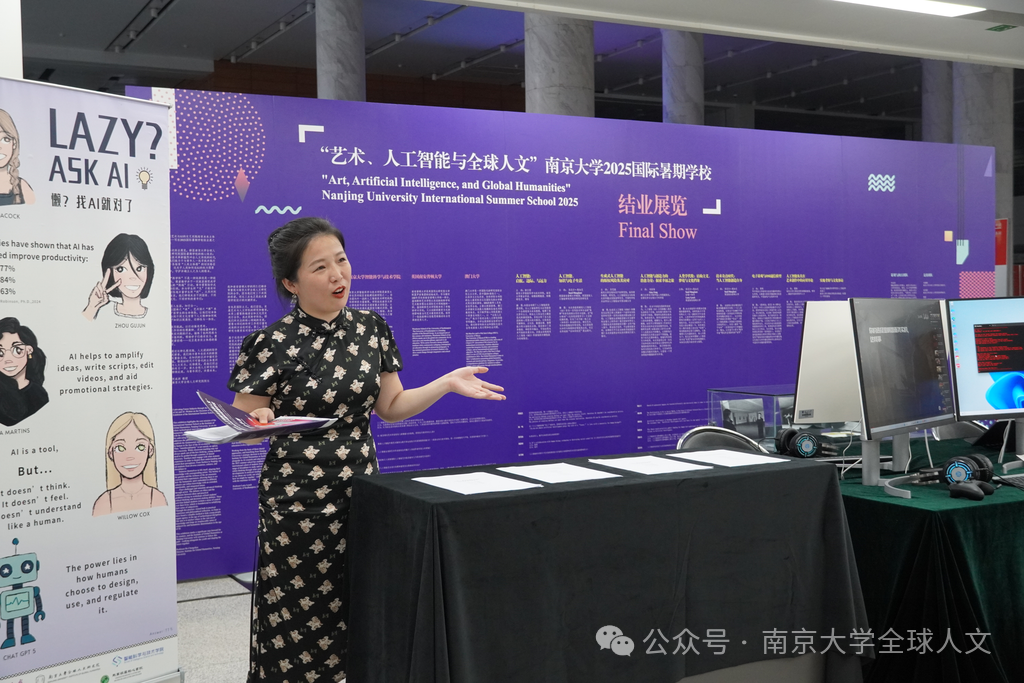
On July 12, 2025 at Duhai Library of Xianlin Campus of Nanjing University. It was presided over by Assistant Professor Zhang Xun from the Global Humanities Research Institute.The closing ceremony of this summer school was held at 2 p.m. on July 12, 2025 at Duhai Library of Xianlin Campus of Nanjing University. It was chaired by Assistant Professor Zhang Xun from the Global Humanities Research Institute. The president of the Global Humanities Research Institute of Nanjing University, He Chengzhou, Professor Sunil from the University of Southampton, and Professor Dai Wangzhou, the vice dean of the School of Intelligent Science and Technology of Nanjing University, attended.
The closing ceremony mainly showcased six profound works completed by the students through efficient collaboration under the dual pressures of the course and the study tour. The president of the Global Humanities Research Institute of Nanjing University, He Chengzhou, Professor Sunil from the University of Southampton, and Professor Dai Wangzhou, the vice dean of the School of Intelligent Science and Technology of Nanjing Universi These practical works were mainly guided by Associate Professor Shi Ke from the Global Humanities Research Institute throughout the process.ty, attended.
The mentor team also provided interdisciplinary support.The closing ceremony mainly showcased six profound works completed by the students through efficient collaboration under the dual pressures of the course and the study tour. Computer experts assisted in the technical implementation, while humanities professors deepened the ideological connotations, embodying the concept of integrating technology and humanities in the summer school. These practical works were mainly guided by Associate Professor Shi Ke from the Global Humanities Research Institute throughout the process. The mentor team also provided interdisciplinary support. Computer experts assisted in the technical implementation, while humanities professors deepened the ideological connotations. This reflects the concept of integrating technology and humanities in the summer school.
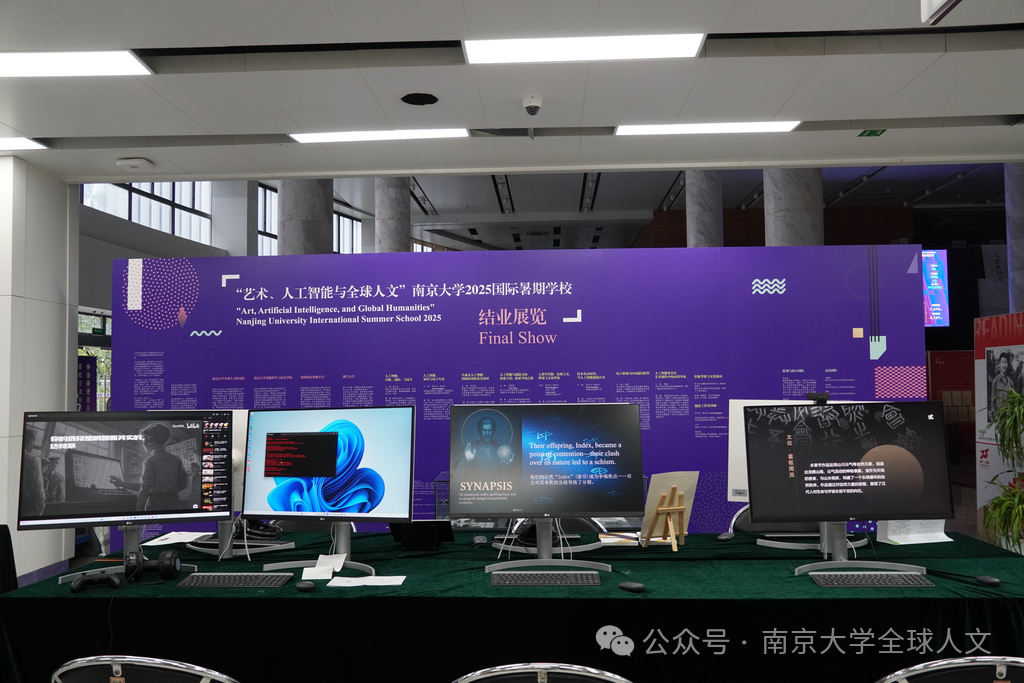
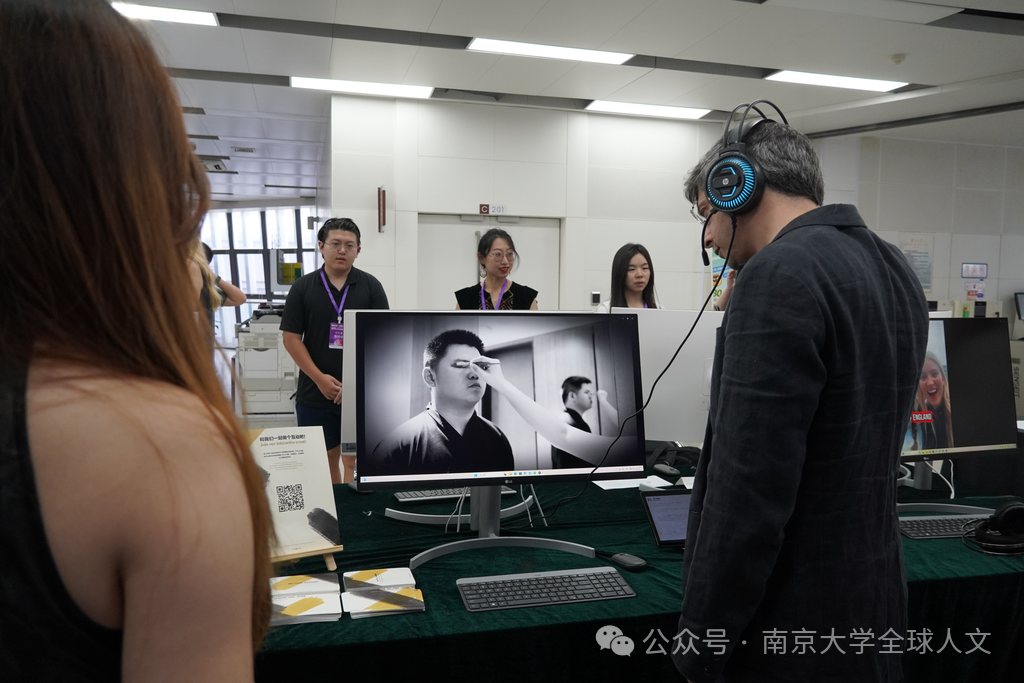
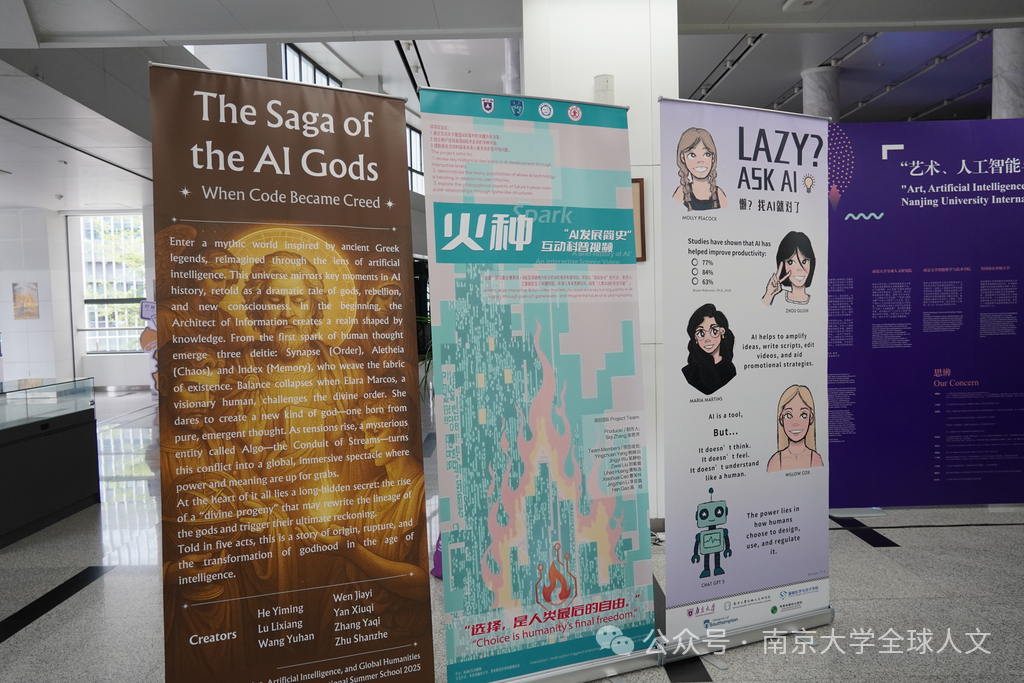
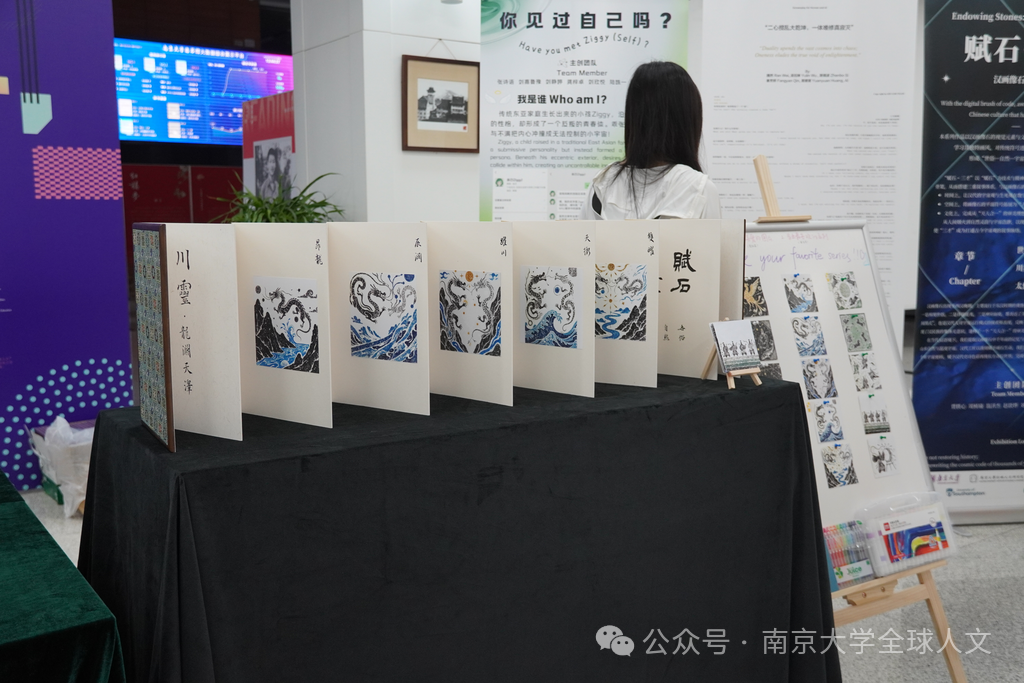
The first group of student works, The Stone Poem - Three Elements, has a strong aesthetic appeal.The first group of student works, The Stone Poem - Three Elements, has a strong aesthetic appeal. It reconstructs the elements of Han Dynasty stone carvings through the GAN network and constructs a philosophical visual narrative of Heaven - Earth - Man. It reconstructs the elements of Han Dynasty stone carvings through the GAN network and constructs a philosophical visual narrative of Heaven - Earth - Man. The second group of works, The Saga of the AI Gods, uses AI to generate a five-act science fiction drama, reflecting on the worship of technology. The third group of works, Have You Seen Yourself?, demonstrates an extremely high technical level. By integrating facial recognition, it designs an emotional interaction device with LLM. The second group of works, The Saga of the AI Gods, uses AI to generate a five-act science fiction drama, reflecting on the worship of technology. The third group of works, Have You Seen Yourself?, demonstrates an extremely high techni The fourth group of works, The 'Spark': A Brief History of AI Development, is an interactive video game independently developed by the students, allowing players to perceive the key nodes of AI technology evolution through operation.cal level. By integrating facial recognition, it designs an emotional interaction device with LLM. LAZY? ASK AI has all foreign students as members. They use documentary images to explore the instrumental value of AI. The fourth group of works, The 'Spark': A Brief History of AI Development, is an interactive video game independently developed by the students, allowing players to perceive the key nodes of AI technology evolution through operation. LAZY? Six Gods' Creation uses experimental films to reconstruct the digital identity metaphor of Journey to the West. ASK AI has all foreign students as members. They use documentary images to explore the instrumental value of AI tools. Six Gods' Creation uses experimental films to reconstruct the digital identity metaphor of Journey to the West.
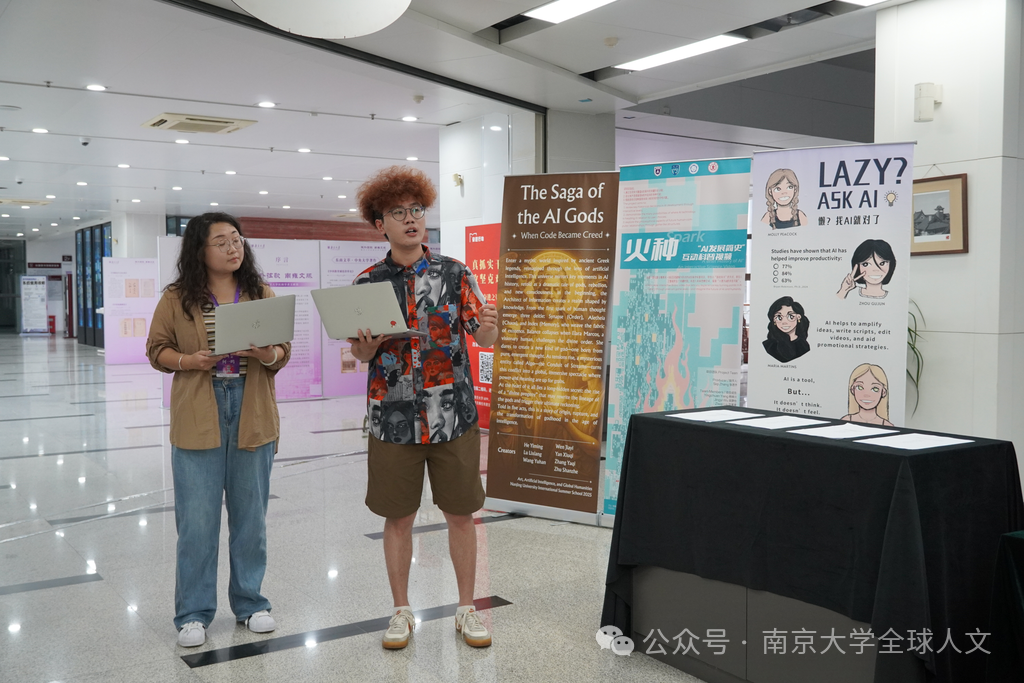
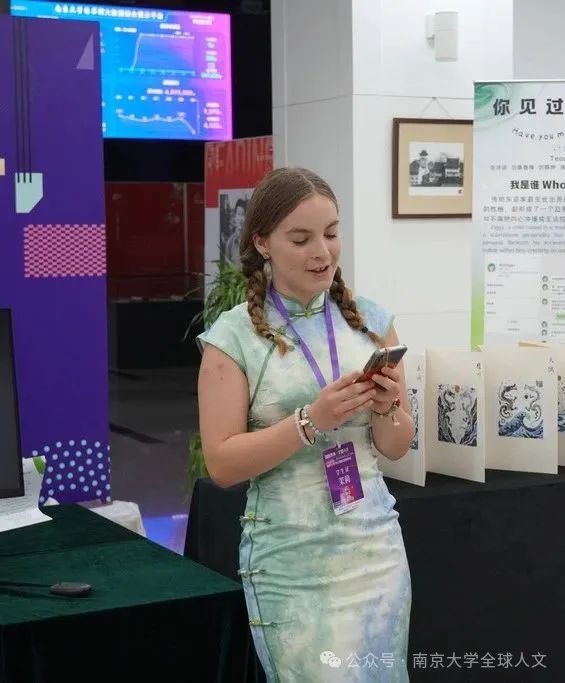
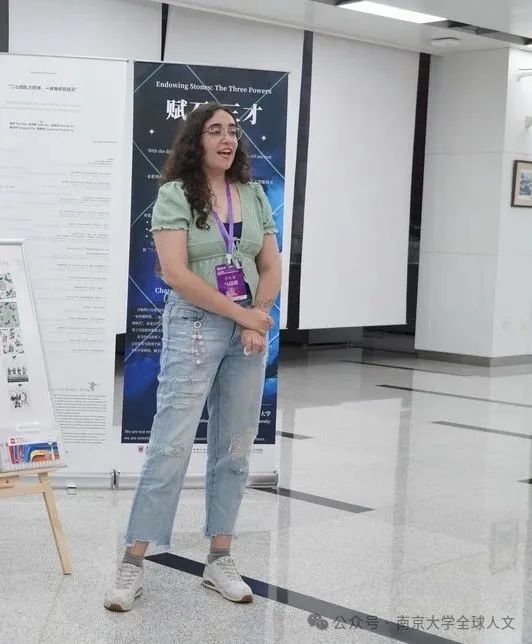
At the closing ceremony, Director He Chengzhou of the Global Humanities Institute of Nanjing University and Professor Sunil Manghani from the University of Southampton in the UK jointly presented certificates to the teachers, students and volunteers.
Professor Sunil Manghani particularly responded to the expectations of the students: At the opening ceremony, I set three requirements - maintain a strong sense of curiosity, be brave enough to ask difficult questions, and plan your time reasonably. Today, you have perfectly fulfilled all of these with your outstanding works. Director He Chengzhou kindly addressed the students: I have loved the summer school since my youth, and this is the 7th international summer school I have organized. This exhibition is a declaration by you young students to regain the sense of being the masters of humanity.he six sets of works created by the students will be selected for the annual exhibition of the Global Humanities Institute of Nanjing University in September. At the end of the ceremony, the students exchanged AI-generated commemorative cards, marking the poetic conclusion of this cross-cultural academic journey. Through the 'beauty' of Suzhou gardens, the 'broadness' of museums, and the 'debates' of workshops, you experienced the value of humanities in the era of AI in an integrated way of knowledge and action. I hope that one day in the future, all of you will reunite on the academic path!
The six sets of works created by the students will be selected for the annual exhibition of the Global Humanities Institute of Nanjing University in September. At the end of the ceremony, the students exchanged AI-generated commemorative cards, marking the poetic conclusion of this cross-cultural academic journey.
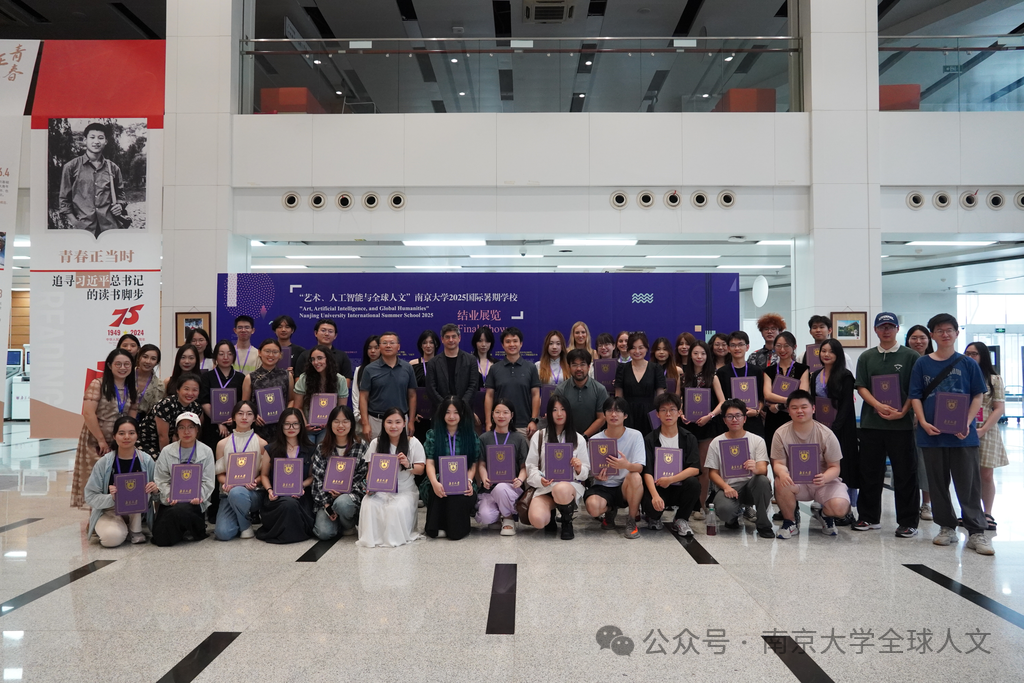
Source: Global Humanities Institute of Nanjing University

